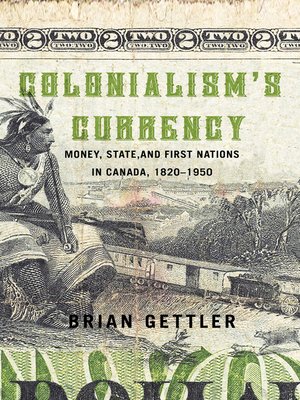Colonialism's Currency
ebook ∣ Money State and First Nations in Canada 1820-1950 · Studies on the History of Quebec/Études d'histoire du Québec
By Brian Gettler

Sign up to save your library
With an OverDrive account, you can save your favorite libraries for at-a-glance information about availability. Find out more about OverDrive accounts.
Find this title in Libby, the library reading app by OverDrive.



Search for a digital library with this title
Title found at these libraries:
| Library Name | Distance |
|---|---|
| Loading... |
Money, often portrayed as a straightforward representation of market value, is also a political force, a technology for remaking space and population. This was especially true in nineteenth- and twentieth-century Canada, where money - in many forms - provided an effective means of disseminating colonial social values, laying claim to national space, and disciplining colonized peoples. Colonialism's Currency analyzes the historical experiences and interactions of three distinct First Nations - the Wendat of Wendake, the Innu of Mashteuiatsh, and the Moose Factory Cree - with monetary forms and practices created by colonial powers. Whether treaty payments and welfare provisions such as the paper vouchers favoured by the Department of Indian Affairs, the Canadian Dominion's standardized paper notes, or the "made beaver" (the Hudson's Bay Company's money of account), each monetary form allowed the state to communicate and enforce political, economic, and cultural sovereignty over Indigenous peoples and their lands. Surveying a range of historical cases, Brian Gettler shows how currency simultaneously placed First Nations beyond the bounds of settler society while justifying colonial interventions in their communities. Testifying to the destructive and the legitimizing power of money, Colonialism's Currency is an intriguing exploration of the complex relationship between First Nations and the state.







